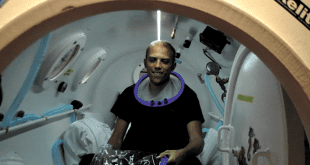 As a result of the COVID-19 crisis and Stay-At-Home Order, caregivers are feeling more overwhelmed and sequestered than ever. The important thing to know is that you’re not alone, and there are essential resources available to help. That’s why we have put together this quick list of tips to help you stay organized and take time for self-care.
As a result of the COVID-19 crisis and Stay-At-Home Order, caregivers are feeling more overwhelmed and sequestered than ever. The important thing to know is that you’re not alone, and there are essential resources available to help. That’s why we have put together this quick list of tips to help you stay organized and take time for self-care.
Don’t forget to take care of yourself, too.
As a caregiver, there is a lot of weight on your shoulders to make sure things are running smoothly, and this can make it easy to put self-care on the backburner. However, it is essential that you make caring for yourself a priority. Just think – if you were to get burnt out, tired, or even sick, things would be that much harder.
Practical Tips:
• Set aside time each day to do something that focuses on you. Take 15 – 20 minutes and work on a crossword puzzle, watch a short television show, listen to a podcast or do some light gardening.
• Exercise. Moving for just 30 minutes a day can improve your mental and physical health. Take a walk around the neighborhood, or find some short exercise videos that match your ability level on YouTube, Prime Video, and other streaming services.
• Include “me time” in your schedule. Plan a set time and add it to your calendar, and actually use that time for yourself. Plan it for the same time every day and soon it will be habit as part of your daily routine.
Know where to go for help.
Don’t be afraid to ask for help. Most times, people want to help. They just aren’t sure how, so ask for something specific. Make a list of people who might be willing and able to help you with small tasks that can help free up some of your time and reduce the number of times you’ll need to leave the house.
Practical Tips:
• Find a neighbor or family member who would be willing to pick up some grocery items or prescriptions for you while they are already out.
• Ask a neighbor or find an inexpensive lawn service to help with yard maintenance. Especially now that the warmer weather is upon us, doing heavy yard work can drain you unnecessarily. Plus, this can be done without anyone coming in your home, limiting any risk of exposure.
• Make a list of everyone’s contact information with notes about what they can do to help, and keep them together so you know where to look when you need to make a call.
Get organized, and keep everything in one place.
There are a lot of things going on simultaneously when you are a caregiver. Staying organized is the best way to ensure you’ll be prepared in the event of an unforeseen situation. Create a binder or folder and keep originals or copies of all of the following items. You could even make extra binders to leave with anyone who may need to make decisions on your behalf – your children or other family members, a neighbor, and even your doctor.
• Updated contact information for family members, neighbors who could check in, doctors’ offices, attorney, and anyone else who might be important to you.
• Medications list, including name of the prescription, dosage and directions for use
• Important passwords and account numbers for banking, monthly bill payments like utilities, credit cards, mortgage, and more.
• Any wills, power of attorney, advanced directives and other legal documents that you may have, as well as contact information for people involved with those items.
Caregiver Support Services at Gulfside Hospice
As part of its Comfort Connections program, the team at Gulfside is proud offer its new Caregiver Support Services to help those who are caring for patients under Gulfside’s care. The non-profit currently serves more than 600 hospice patients daily, meaning there are more than 700 caregivers benefiting from the program, both locally and nationwide.
Services of this program include a phone call from the team upon admission with resource information, individual consultations and support groups for finding valuable insights and practical suggestions, pre-bereavement consultation for anticipatory grief, and bereavement support for dealing with loss.
Even during the current COVID-19 crisis, these services are still being offered to families, and are more important than ever. Thanks to technology, the Caregiver Support Services team is able to offer the consultations and support groups via telephone and video conferencing. This means that even now, caregivers are truly not alone.
To learn more about the Caregiver Support Services or other programs offered by Gulfside Hospice, call 800-561-4883 or visit www.Gulfside.org. These services are offered at no charge to its families thanks to the support and generosity of the community. To support the program, please consider making a gift at www.gulfside.org/make-a-gift.
 Central Florida Health and Wellness Magazine Health and Wellness Articles of the Villages
Central Florida Health and Wellness Magazine Health and Wellness Articles of the Villages



